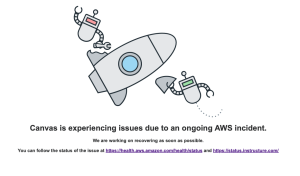Why I watch Fox News
December 1, 2017
Drop your pitchforks, guys. I’m still a human being.
I’ve been pretty apolitical this year, preferring to lighten tense situations by cracking a cringey joke or two, and I still strive for that goal.
But with how chaotic events have been recently, it was only a matter of time before I’d bring up politics.
Since we can’t feasibly spend our entire day in Washington listening to the jargon of Congress, understanding the rulings of the Supreme Court, and, most notably, observing the statements of our President, we have to rely on the various forms of media to funnel information our way.
For some odd reason, we approach the media, a vital institution to an informed citizenry, like non-fat milk, completely lacking in any substance. Many readers, including our own, just carelessly breeze through print or digital headlines.
There’s nothing wrong with that, other than missing out on the 600+ words that a writer spent hours creating, only to be disrespected within seconds. Totally fine with that.
There’s a select few that somehow actually spend time engaging in quality coverage. Reading The Atlantic or Wall Street Journal articles might make you feel like a pseudo-intellectual, but that kind of effort is what we need to have real, informed conversations.
But I’m not here to praise those credible, reliable sources that teachers and librarians love referring you to. No, I’m focusing on one of those taboos that are often the subject of an angry teacher rant regarding sources to avoid.
Because I read Breitbart. I listen to conservative podcasts. And yes, I watch Fox News.
I’m not an avid follower of the news these groups put out, but when I have time to flip through TV channels, I spend at least twenty minutes to see what the “most-viewed cable news network” has to say about the day’s events.
To clarify, I don’t at all condone the poor business practices you hear in these organizations, like allegations of sexual harassment against Bill O’Reilly. That’s an entirely different conversation.
What I’m focusing on is how we surround ourselves with sources that we personally agree with, or organizations that validate our personal beliefs. Watching John Oliver rant about journalism or reading The Atlantic’s skepticism is a satisfying experience, but I don’t feel that I get much out of it except new information to consider.
But hearing Alex Jones talk about chemicals in the water making frog people? Now that’s entertaining to watch, if not frustrating at the same time.
It’s so easy to label those we disagree with, whether it’s Anderson Cooper or Sean Hannity, as a “snowflake” or a Trump supporter.
But less simple, less fun, and more noble is choosing to treat your apparent opponents with respect.
In doing so, we can genuinely listen to what the other side says, understand their perspective, and see them as a friend.
And you might hear some valid points. When Hannity mentioned how debate moderators showed some bias in their treatment of candidates, he raised a fair point.
Even when I hear something I disagree with, like opinions on our president, I don’t dismiss it or completely change my opinion. I try to take the path of nuance, comprehend why he and many others have that belief, and consider that perspective in any and all future political discussions.
Ignoring a vast majority of the human race on the sole basis of disagreement isn’t going to resolve our conflict, but empathy might be the first step.
My point is that in our current environment, we’re surrounded by predominantly liberal sources of media, and diversifying your viewing with some Fox News now and then wouldn’t hurt you.
The labelling process validates our sense of self, and it also creates a group to blame. An opponent. An enemy.
But if we take a moment to listen to what they have to say, suspending our disagreement in favor of understanding, then perhaps we’ll find that there is more that unites us in our humanity than what divides us.
So when looking at other content, please don’t be like non-fat milk: skim.










































